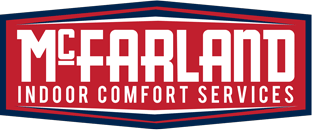Your Wintertime Heating Options
The options that you have to heat your home have expanded greatly as new technologies have been innovated and older tech continues to be refined. Here are some of the more common choices. Furnace Furnaces are by far the most prevalent type of home heating in the U.S. and are available in both electric and gas configurations. Most home heating setups with a furnace are centralized forced air systems that distribute warmed air via ductwork. Boiler Boilers are the second-most prevalent heating type in the U.S. There was a point when they were just as popular as furnaces, but their commonness has diminished as furnaces have become less expensive upfront and over the long term. The main difference between a boiler and a furnace is that a boiler uses hot water or steam to heat a home. Radiant heating systems are most common for homes with boilers. Heat Pump Heat pumps are essentially air conditioners that can operate in reverse in order to heat as well. They are highly efficient but are not suitable to climates where the temperature drops below 40 degrees Fahrenheit. Hybrid Heating Hybrid heating systems pair a heat pump with a furnace. This allows you to...
View Article